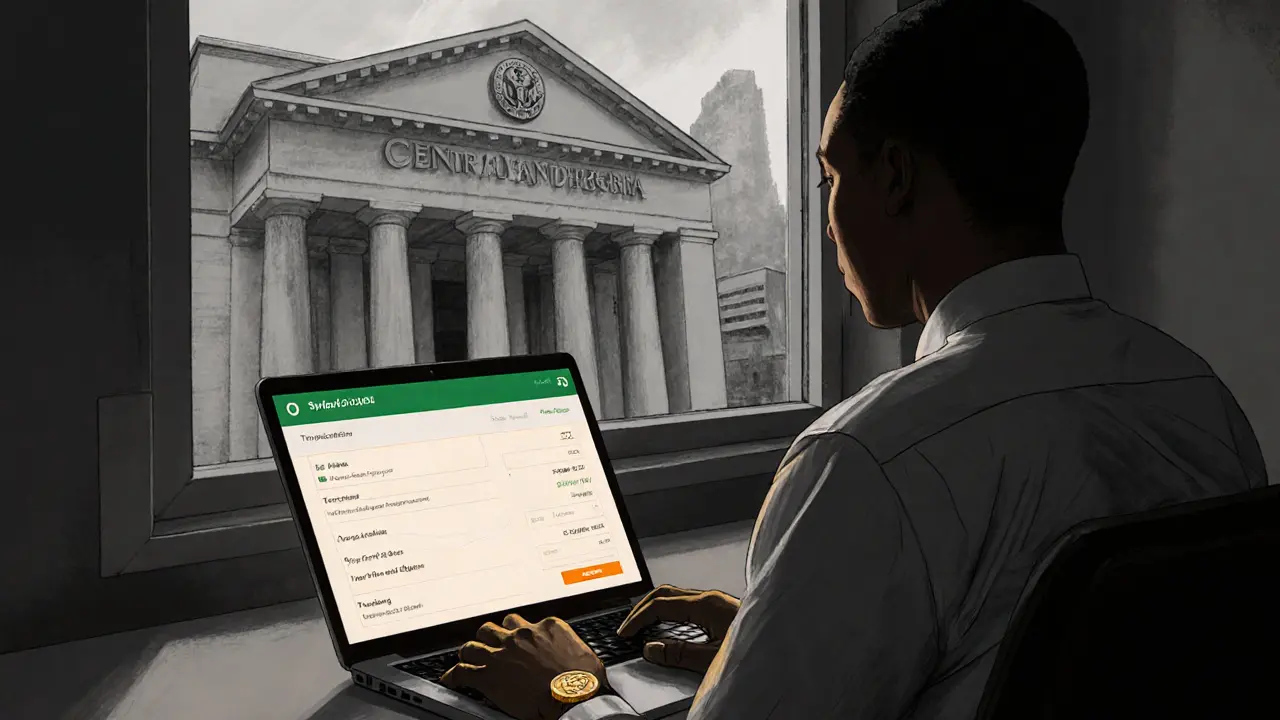Learn how Nigerian banks handle crypto-to-fiat withdrawals in 2025, including regulations, limits, risks, fees, and best practices for smooth transactions.
Fiat Conversion Nigeria: Fast, Low‑Cost Ways to Turn Naira into Crypto
When working with fiat conversion Nigeria, the process of swapping Nigerian Naira for digital assets. Also known as Naira‑to‑crypto conversion, it lets traders move money in and out of the crypto world without a bank. This activity bridges traditional finance and blockchain, enabling everyday users to buy Bitcoin, Ethereum or stablecoins directly from their wallets. The central idea is simple: you give a local payment method, you receive a crypto token, and you can trade it on any platform that supports the token.
One of the most common related entities is Nigerian Naira (NGN), the official fiat currency in Nigeria. Naira’s low interest rates and high inflation make crypto an appealing store of value. Another key player is the cryptocurrency exchange, a platform that matches buyers and sellers of digital assets. Exchanges provide the liquidity needed for swift conversion, often supporting multiple payment options like bank transfer, credit card, or mobile money. Finally, stablecoins, cryptocurrencies pegged to a stable asset such as the US dollar act as a bridge, letting users lock Naira value in a less volatile form before moving into higher‑risk tokens.
What Drives a Smooth Fiat Conversion in Nigeria?
Three factors shape the experience: regulation, payment infrastructure, and market depth. Regulations define which exchanges can legally operate and what KYC/AML steps you must take. The Central Bank of Nigeria has issued guidelines that affect how banks handle crypto‑related transactions, so you’ll often see services routed through mobile money providers like Paga or OPay to stay compliant. Payment infrastructure matters because most Nigerians rely on mobile wallets and bank apps. A robust network means faster deposits, lower fees, and fewer failed transactions. When an exchange integrates directly with these services, the conversion time drops from days to minutes. Market depth is the pool of buying and selling orders available at any moment. High depth reduces slippage – the difference between the expected price and the price you actually get. Exchanges with deep order books, such as Binance Nigeria or local platforms like Bundle, typically offer better rates for large conversions. These three items form a semantic triple: Fiat conversion Nigeria requires a regulated exchange, relies on mobile money infrastructure, and benefits from deep market liquidity. Together they create a reliable pipeline for turning Naira into crypto.
Security is another related entity you can’t ignore. When you hand over Naira, you trust the exchange with your funds, so you should look for features like two‑factor authentication, cold storage, and insurance coverage. A secure platform not only protects your money but also boosts overall confidence in the market, which in turn drives more users to try fiat conversion.
Lastly, cost efficiency plays a big role. Fees vary by payment method: bank transfers often cost 0.5‑1%, card purchases can be 3‑5%, while mobile money might sit around 1‑2%. Stablecoins usually lower the fee burden because you avoid multiple conversions. For instance, converting Naira to USDT first, then swapping USDT for Bitcoin, can shave off a percent or two compared to a direct Naira‑to‑BTC trade.
All these pieces – regulation, payment channels, market depth, security, and fees – intertwine to shape the fiat conversion landscape in Nigeria. Understanding how they connect helps you pick the right tool for your needs, whether you’re a casual investor, a day trader, or a business seeking to pay suppliers in crypto.
Below you’ll find a curated set of articles that dig deeper into each of these topics. From detailed exchange reviews and step‑by‑step guides on using stablecoins, to the latest regulatory updates and tips for avoiding scams, the collection gives you practical insight to navigate fiat conversion Nigeria with confidence.

